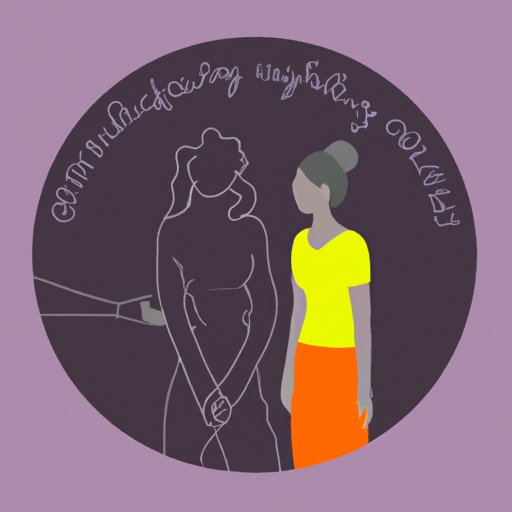Introduction
Guilt tripping and gaslighting are two manipulative tactics that can be used to control and manipulate people in relationships. It’s important to understand the dynamics at play when someone is using these tactics, as well as how to recognize and respond in a healthy way. This article will explore the definition of guilt tripping and gaslighting, explain the intent behind these tactics, provide signs to look out for, and offer strategies for managing the emotional reactions they can trigger.
What is Guilt Tripping and Gaslighting?
Guilt tripping is the act of making someone feel guilty or ashamed in order to manipulate them into doing something they don’t want to do. It involves using guilt-inducing language or behavior to pressure someone into complying with your demands. Examples of guilt tripping include phrases like “If you loved me you would…” or “I thought I could count on you…”
Gaslighting is a form of psychological manipulation in which someone tries to make another person doubt their own perception, memory, or judgement. It can involve denying facts or reality, telling lies, manipulating information, or saying things to make someone question their own sanity. This tactic is often used to gain power over someone and to make them more dependent on the manipulator.
It’s important to note that both guilt tripping and gaslighting are intentional acts of manipulation, rather than unintentional mistakes. According to Dr. Stephanie Sarkis, a licensed mental health counselor and author of Gaslighting: Recognize Manipulative and Emotionally Abusive People – and Break Free, “Gaslighting isn’t always easy to recognize, but it’s important to know what it is so that you can protect yourself from being manipulated and controlled.”

How to Recognize and Respond to Guilt Tripping and Gaslighting
The first step in responding to guilt tripping and gaslighting is to learn how to recognize it. Some common signs to look out for include:
- Making false accusations
- Withholding affection or attention
- Using sarcasm or insults
- Making threats or ultimatums
- Manipulating the truth or facts
Once you’ve identified the behavior, it’s important to take steps to diffuse the situation. Here are some tips for responding in a healthy way:
- Remain calm and avoid getting angry or defensive
- Acknowledge the other person’s feelings without accepting blame
- Set boundaries by firmly stating what you will and won’t put up with
- Express yourself honestly and clearly
- Refuse to engage in any further discussion until the other person stops using manipulative tactics
The Psychological Effects of Guilt Tripping and Gaslighting
When someone is subjected to guilt tripping and gaslighting, it can have a significant impact on their mental health. Studies have found that these tactics can lead to feelings of anxiety, depression, low self-esteem, and mistrust, as well as physical symptoms such as headaches and stomach problems.
In order to manage the emotional reactions triggered by guilt tripping and gaslighting, it’s important to take care of your mental health. This can involve engaging in activities that help reduce stress, such as exercise, yoga, or mindfulness. It’s also helpful to reach out to a therapist or other mental health professional for support.

Strategies for Dealing with Guilt Tripping and Gaslighting in a Relationship
If you’re in a relationship where someone is routinely using guilt tripping and gaslighting tactics, it’s important to take action to protect yourself. Here are some strategies for dealing with these behaviors:
- Establish healthy boundaries. Make sure you’re clear about what behaviors are acceptable and which ones are not. Be firm in communicating your boundaries and don’t be afraid to walk away if they’re not respected.
- Seek support. Find someone who you trust to talk to about your experiences. This could be a friend, family member, or mental health professional.
- Take time for self-care. Engage in activities that make you feel good, such as reading, listening to music, or spending time in nature.
Conclusion
Guilt tripping and gaslighting are two manipulative tactics that can have serious psychological effects on those subjected to them. It’s important to recognize these tactics and take steps to protect yourself from their damaging effects. By establishing healthy boundaries, seeking support from others, and taking time for self-care, you can begin to heal from the emotional trauma caused by guilt tripping and gaslighting.
(Note: Is this article not meeting your expectations? Do you have knowledge or insights to share? Unlock new opportunities and expand your reach by joining our authors team. Click Registration to join us and share your expertise with our readers.)
